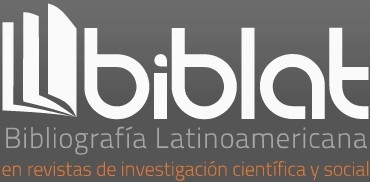Immanence: strategy of humanism?
DOI:
https://doi.org/10.35494/topsem.2015.1.33.233Keywords:
immanence, history of ideas, strategy, form of livingAbstract
For semioticians, immanence is only a theoretical position and a methodological choice. But in many domains of knowledge, culture and social life, and in many times in the history of philosophical, religious and scientific ideas, immanence has provoked debates of a great magnitude, which form the substance of our discussion: this notion seems to have a great polemic strength that make us think about other issues than mere theoretical positioning. In each of these fields of knowledge, and at each of these periods of the history of ideas, the posture of immanence implies ruptures, strategic decisions and axiological choices.
In this respect, we may observe that in every field of knowledge or social and cultural life in which it operates, immanence is a very argumentative and sociopolitical strategy which challenges habits of thought, traditions and authorities, reasoning taken for granted, and, for this reason, has to face other strategies, including those of transcendence.
This strategy proceeds by defining first the scope and boundaries of its domain, it choices then a “man height” point of view, it redefines all forms of causalities as internal dependencies and searches the consistency of a whole which is its object. During the confrontation with other strategies, such as those of transcendence, it does not only set up a way of thinking and reasoning, but it guides also a way of doing and being in the world. Immanence strategies have concrete implications in the ways of believing and praying, in the ways of conceiving political organizations and in the ways of doing science and conceiving their objects: it shows as well, including in the linguistic and semiotic field, most of the properties of a form of living.
Downloads
References
BORDRON, Jean-François y Audrey Moutat (2013). « Métalangage et épi-sémiotique ». Signata, núm. 4, Que peut faire le métalangage ? Lieja.
CULIOLI, Antoine ([1990] 1999). Pour une linguistique de l’énonciation. t. 1 y 2. París : Ophris.
DELEUZE, Gilles ([1995] 2008). « L’immanence, une vie ». Philosophie, núm. 47. Minuit. Retomado en Dos regímenes de locos. Pre-textos, 2008.
FLOCH, Jean-Marie (1993). Semiótica, marketing y comunicación: bajo los signos, las estrategias. Paidós Ibérica.
FONTANILLE, Jacques (2003). « Enonciation et modélisation ». Modèles Linguistiques, núm. 1-XXIV. Toulon.
___________ (2014). Prácticas semióticas. Lima: Universidad de Lima.
___________ (2015). Formes de vie. Lieja: Colección Sigilla, Lieja, Presses Universitaires de Liège; coll. « Sigilla » [en prensa].
GAUCHET, Marcel (2003). La religión en la democracia: el camino del laicismo. Barcelona: El Cobre.
HENRY, Michel (2001). Encarnación: una filosofía de la carne. Salamanca: Ediciones Sígueme.
HENRY, Michel (1963). L’essence de la manifestation. París: puf.
___________ (2007). Filosofía y fenomenología del cuerpo: ensayo sobre la ontología de Maine de Biran. Ediciones Sígueme.
HJELMSLEV, Louis (1974). Prolegómenos a una teoría del lenguaje. Madrid: Gredos.
JUAN PABLO II. Discurso del 22/12/86 a los cardenales de la Curia, núm. 11; DC 1987, núm. 1933 [Se puede consultar la versión en italiano en: http://www.vatican.va/holy_father/john_paul_ii/speeches/1986/december/index_sp.htm]
JAKOBSON, Roman (1985). “Lingüística y poética”. Ensayos de lingüística general. Barcelona: Planeta.
OST, François (2005). El tiempo del derecho. México: Siglo XXI . pío x. Pascendi Dominici Grégis. Roma, Vaticano [Versión en español publicada en: http://www.fundacionspeiro.org/verbo/1968/V-65- 66-P-426-470.pdf].
Downloads
Published
How to Cite
Issue
Section
License

Tópicos del Seminario is licensed under a Creative Commons Reconocimiento-NoComercial-CompartirIgual 4.0 Internacional License.














